Sunny skies: Quebec is shaping up to be one of the best places to watch solar eclipse on Monday
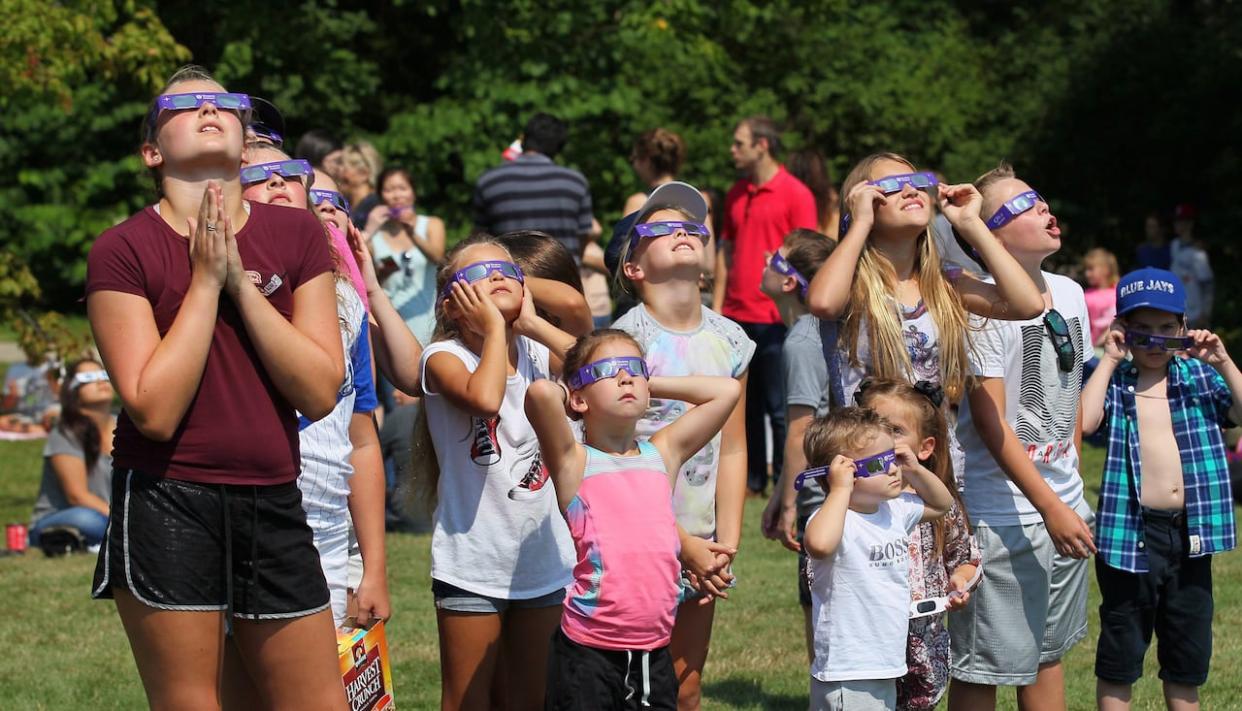
Evan Zucker and his wife, Paula Eisenhart, are lugging 12 cameras, 10 tripods and three telescopes from their home in San Diego all the way up to Quebec to try to catch the best view of the total solar eclipse on April 8.
They changed their travel plans after seeing the weather forecast.
With just days leading up to Monday's phenomenon, Environment and Climate Change Canada is projecting a sunny day on Monday with highs of 13 C in both Montreal and much of the Eastern Townships.
Zucker and Eisenhart who are staying in Sherbrooke, Que., made the last-minute change days into their travels and have been averaging upward of five hours in the car for the past week
"We expected to drive only as far as Texas," said Zucker, speaking from his car as he approached the Canadian border.
"A year ago I did make reservations in five cities, San Antonio, Dallas, Little Rock, Indianapolis and Rochester, realizing that I didn't know where the clear skies are going to be and so I needed mobility just in case there were clouds in the South, and that's exactly what's happened."
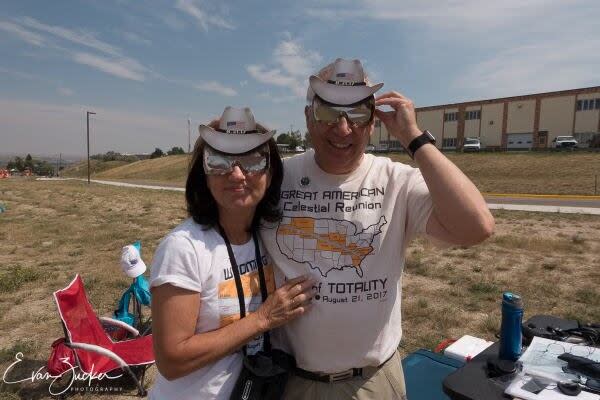
Evan Zucker and Paula Eisenhart have travelled to view several eclipses over the past few years . This year, they are driving to Sherbrooke, Que., from their home in San Diego. (Submitted by Evan Zucker)
Zucker, a self-proclaimed umbraphile or eclipse-chaser, says anyone who has ever seen an eclipse would understand why he's willing to travel such long distances.
"It's the most spectacular natural site you can see on earth," said Zucker. "Everybody finds it emotional. It's not unusual for people to cry, so once you've seen one ... The most common thing people say when the eclipse is over is 'When's the next one?'"
Philippe Moussette, an astronomy photographer based in Quebec City, also changed his travel plans to stay in the province after seeing the weather forecast.
The president of the Véga Cap-Rouge astronomy club had initially planned to travel thousands of kilometres south to Dallas because the eclipse will last 51 seconds longer there.
Now, he says, Quebec is shaping up to be one of the best places to watch.
'Bye-bye Texas," joked Moussette.
"All the people in Quebec and Montreal … After they saw the [forcecast], said 'oh no, cancel the trip and stay in Quebec.'"
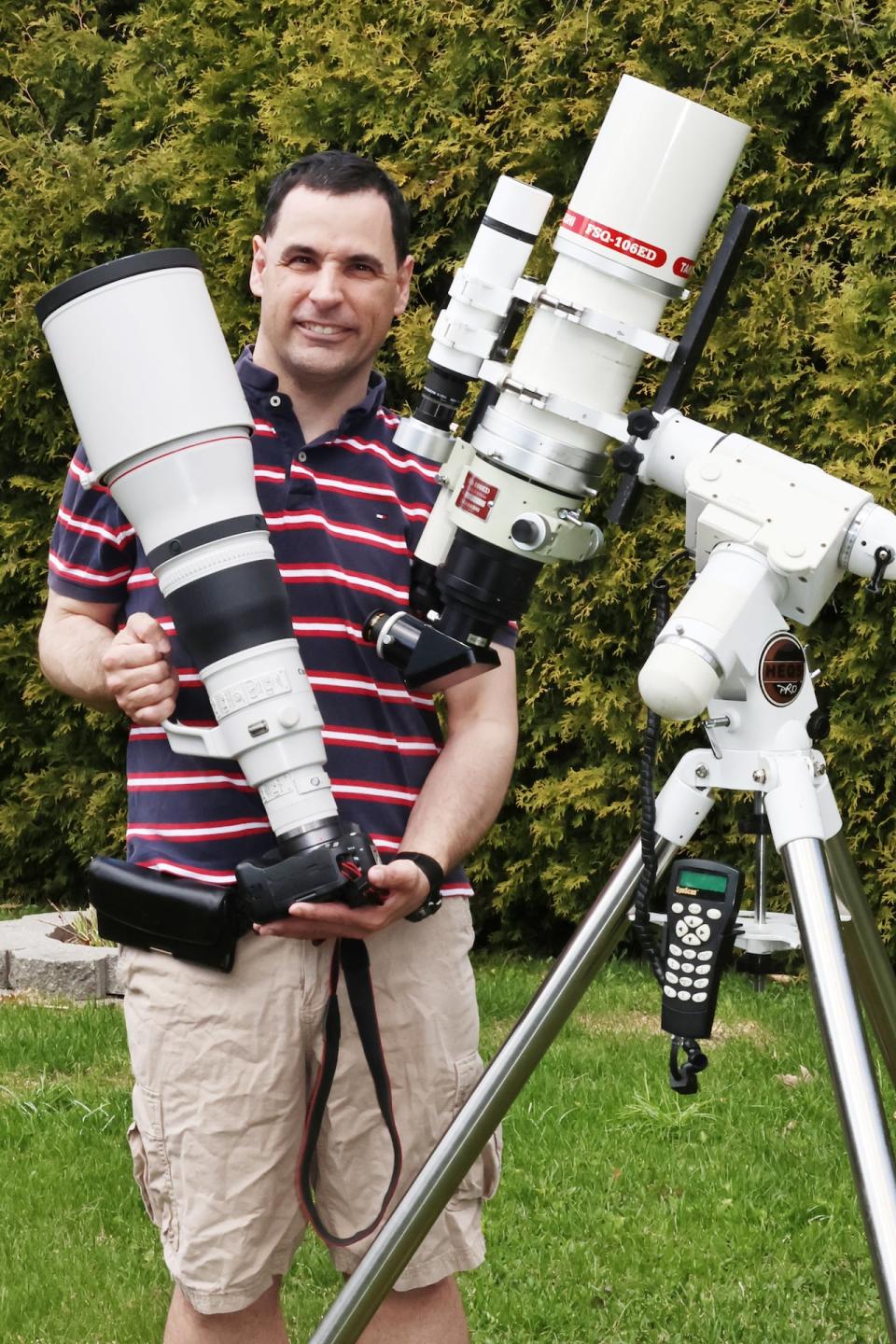
Philippe Moussette, an astronomy photographer based in Quebec City, is pictured with the gear he uses to photograph total solar eclipses. (Submitted by Philippe Moussette)
He says meterologists are predicting cloudy skies and storms for Texas.
But forecasts in Ontario, Maine, Nova Scotia, New Brunswick and Quebec are optimal, said Moussette.
On Monday, he'll be travelling to Lac-Mégantic, Que., with his massive telephoto lens and tripod for the day and recommends everyone get out on the roads early to avoid traffic.
With thousands of people expected to be travelling to get a glimpse of the eclipse, public safety officials in Quebec have issued warnings — advising people to plan their trips.
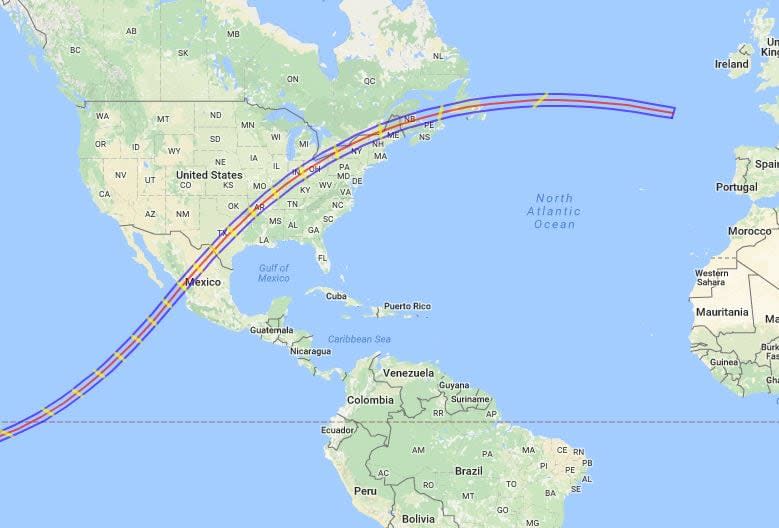
This is the predicted path of the 2024 solar eclipse. The northern and southern path limits are blue and the central line is red. NASA notes you must be somewhere within the central path (between the blue lines) to see the total phase of the eclipse. (NASA)
Louis-André Bertrand, a spokesperson for Quebec's Transport Ministry says they have mobilized additional personnel, traffic surveillance and signage while minimizing the number of planned obstructions on the road.
"We are expecting significant congestion. When we look at other places around the world where they have had total solar eclipses, there have been major episodes of congestion," said Bertrand.
He expects congestion in the Montreal area, on the South Shore and in the Eastern Townships but advises commuters never to stop their vehicle on a road during the total eclipse.
"That would be unsafe. So my advice would [be] go to a rest area or service area along the highway," said Bertrand.
"Remind yourself that your windshield, your rear-view mirrors, even if they're tinted, they do not offer protection against the solar eclipse, so you shouldn't look at the sun directly through your car."
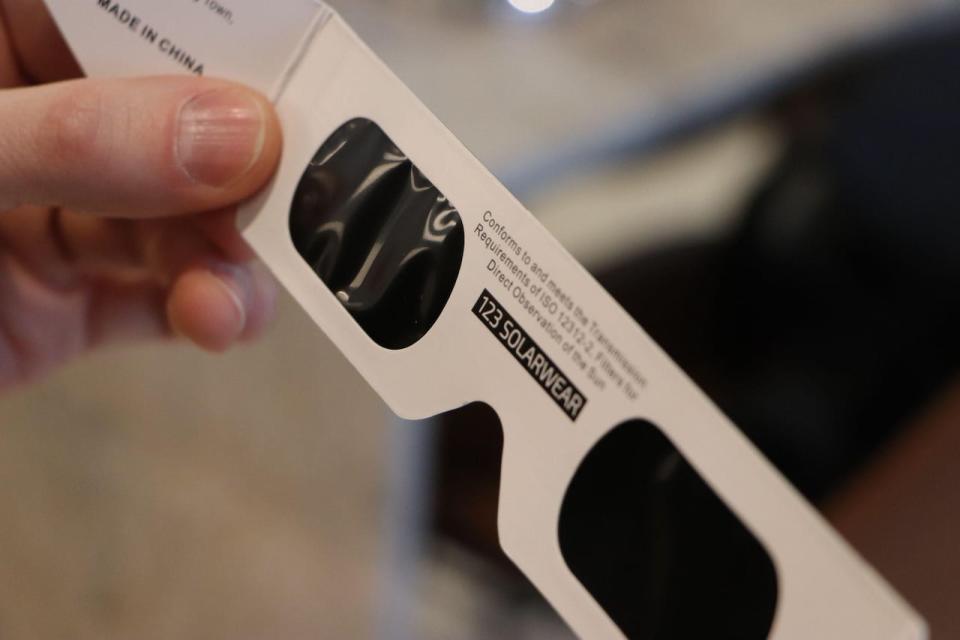
Eclipse glasses sold at Doyle Optometrists have the ISO 12312-2 standard printed in the centre of the glasses to indicate its certification. The spokesperson for Transport Quebec says no one should ever wear solar eclipse glasses while driving. (Rachel Watts/CBC)
He also added that no one should ever wear solar eclipse glasses while driving since the lenses are made to provide full black-out coverage unless looking directly at a bright light or the sun.
Bertrand adds that those with electric vehicles should also expect high demands at charging stations and should plan ahead of time where and how to recharge throughout the day.
Provincial police issued a video on Friday explaining that officers will be patrolling to ensure everyone's safety on Monday. They encouraged people to find themselves in a safe location when the moon completely covers the sun as parts of Quebec will dip into partial darkness.

